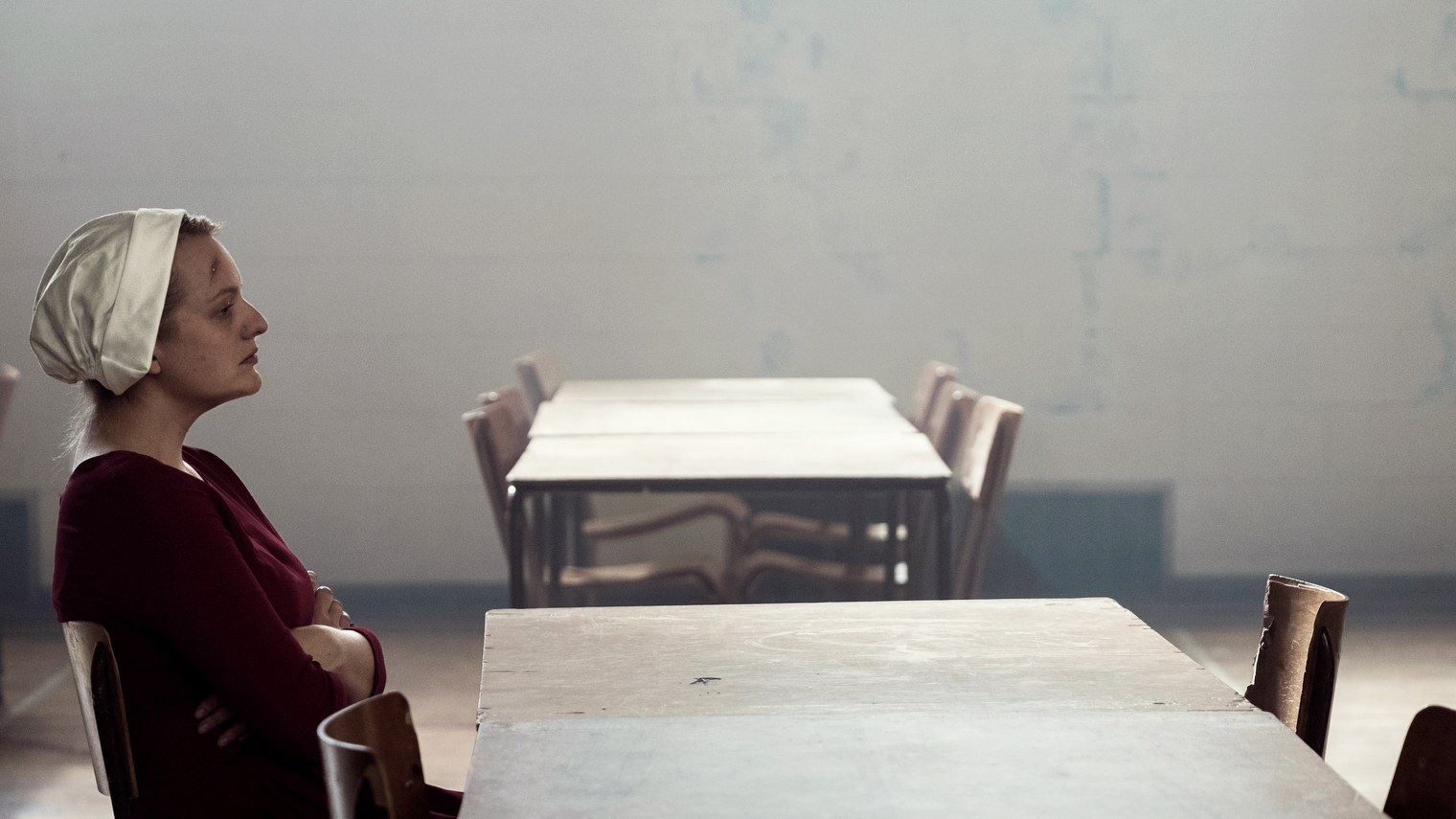This post contains spoilers for The Handmaid’s Tale Season 2, Episode 3, “Baggage.”
In its first season, Hulu’s Handmaid’s Tale adaptation worked its way through the novel’s most crucial plot points—leaving many to wonder where it might go in its second outing. Season 2’s two-part premiere last week offered the beginnings of an answer, taking viewers to some of the outer fringes of Gilead. June hid out in the abandoned headquarters of what was once The Boston Globe, while Emily toiled away in the dreaded Colonies—as seen for the first time on screen.
In its third installment, however, the drama digs even deeper into the emotional toll Gilead has taken on everyone—both those left in what was once the United States and those who’ve made it out. The lives and dreams that each character lost to this totalitarian regime have been laid out in excruciating detail before—but this week, the show lays those losses bare with more subtlety than perhaps any other episode. With each narrative beat came a new shade of loss: a shattered illusion of choice, a Quran hidden from view under a bed, a sexual encounter colored by lingering trauma. This week, The Handmaid’s Tale Season 2 has made its best case so far for its own existence—by defining the stakes of June’s fight more clearly, and by introducing an element of doubt.
As promised by cast and producers ahead of the season premiere, “Baggage” offered a more comprehensive glimpse at the way Gilead functions—by sending June, eventually, into the home of a poor family. Until now, viewers’ understanding of Gilead has been limited to how the upper rungs of society work; handmaids only live with wealthy Commanders and their Wives. June’s short-lived stint hiding out in the apartment of a man and his Econowife helped fill in some of the blanks—in terms of what life is like for most citizens of Gilead, and how poorer women view handmaids. As explained in passing in Margaret Atwood’s original novel, Econowives are women married to poorer, lower-status men. “These women are not divided into functions,” June says at one point in the book. (In richer households, handmaids do the childbearing, Wives raise the children, and Marthas do the housework. Econowives, in contrast, “have to do everything; if they can.”) As in the novel, it appears the Econowives of the TV adaptation don’t think very highly of handmaids—and it’s not hard to understand why.
“I don’t know how you could give your baby up to someone else,” the Econowife of the man hiding June says at one point. When June replies that she is trying not to, the Econowife says, “I would die first.” June’s response is bitterly mournful: “I used to think that, too.”
It’s clear that June has learned the hard way that finding a heroic solution is much easier said than done. Would dying really have been her most noble option? If she had, what would have become of her daughter, Hannah? The tragedy of her reality is that there is no heroic solution—and it’s not just June’s loss we feel this week.
When the family hiding her leaves June to go to church—a “public profession of faith,” as they describe it—she discovers that they, too, have a secret: a Quran hidden underneath the bed, along with a prayer rug. As we’ve already learned, religions other than the state religion are punishable by death in Gilead. Islam was never addressed in Atwood’s original novel—aside from a passing note about an inciting attack that was blamed on Muslim extremists. But it’s noted in the novel that Catholics and Jews have been barred from practicing their faith; as Gilead was established, nuns were given the chance to convert or face death, while Jews were given the option to convert or emigrate to Israel. (It’s mentioned during the epilogue of the book, however, that the repatriation scheme was privatized, “with the result that more than one boatload of Jews was simply dumped into the Atlantic, to maximize profits.”) As she lays out the prayer rug, a look of tragic recognition flits into June’s eyes.



